Septic Tank in your new build?
misstifyftl
14 years ago
Featured Answer
Sort by:Oldest
Comments (32)
misstifyftl
14 years agocreek_side
14 years agoRelated Discussions
What is over your septic tanks?
Comments (32)remudal I have a service contract with a company that checks my aerobic system every three months. It entails opening the tops and measuring the settlable solids, checking the air pump filters and the disinfection device, as well as inspecting some other parts of the system. I suppose it is practical to leave the tops above ground to facilitate this procedure. I just have to live with this. Thankfully they are behind the house. They are really in the way when dragging the watering hose acrosss the lawn....See MoreHelp with pitch of line from house to septic tank
Comments (6)The whole discussion is at the site linked below. Here is an excerpt. "kordts 11-29-2006, 07:50 PM "Pretty much the reason for the 1% to 2% slope is so that the water floats out the waste. If it is too steep the water can out run the waste and contribute to a clog. The big reason for a y rather than a 90 is so that you can get a snake down it easier to clean out if needed. I'm sure it is also to keep the solids flowing rather than slamming into a corner and getting stuck there. Of course, the smoother the inside of the pipe and the fewest ridges of any kind...the better and less for "stuff" to get hung on." randyj, that's wrong. Water doesn't outrun waste. There have been university studies on this. I have seen many long runs at steep angles, and they don't clog up. The code calls for minimum pitch, not max." Here is a link that might be useful: Forum...See MoreSeptic tank
Comments (34)I almost jumped in the other day so say this, but was afraid you would't want to hear it. But you're young, take a break and let life sort itself out and in the meantime keep your eyes and mind open to possibilities. By the time the kids get settled, you'll know so much better what works best for you. When we were about your age, we were thinking about building a retirement home here, casually looking for land and drawing plans. At that time our DD was just graduating from college and planning a year off before grad school to be a ski bum in the resort town we all love 1000 miles away from home. It was supposed to be a one year thing, but in a few years she was married to a great guy, had a good career, lots of friends, and decided to made it her home. Guess where we bought a lot for our retirement home? Now even my 84 year old mother has toured and agreed to move to a new senior housing center in the same town when we move. We're just a few years from retirement and bought the lot last year. We are now working with an architect and plan to break ground in about 2 years. Things have a way of working out. You'll know when it's right! In the meantime keep dreaming and planning. By the way, we looked for our lot for three years and went through the in town or out of town on acreage thing, but even though in town was more pricey we settled in town because of the convenience to shopping, dining, healthcare and entertainment. Once we decided what was really important to us, making the decision on our 'this is the one' lot was really easy. Yours will be too....See Moreseptic tank
Comments (2)Looks like an an old septic tk. If you're building over it, the gravel should be compacted or it will settle and a hollow will form., preferably every 18-24" of depth....See Moremisstifyftl
14 years agobooboo60
14 years agokangell_gw
14 years agojmagill_zn4
14 years agocreek_side
14 years agoalabamanicole
14 years agobdpeck-charlotte
14 years agomythreesonsnc
14 years agomisstifyftl
14 years agocreek_side
14 years agocreek_side
14 years agosue36
14 years agocreek_side
14 years agoalabamanicole
14 years agomythreesonsnc
14 years agoalabamanicole
14 years agosue36
14 years agobrickeyee
14 years agocynandjon
14 years agomthouse
14 years agocreek_side
14 years agosrercrcr
14 years agojasonmi7
14 years agoccoombs1
14 years agobrickeyee
14 years agodavidandkasie
14 years agoEversole Home Decorating
9 years agoMistman
9 years agoVera Cornwell
8 years ago
Related Stories
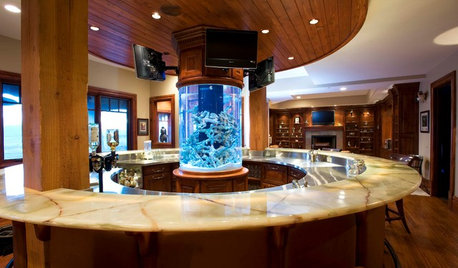
DECORATING GUIDESDesigning Nemo: 30 Fish Tanks Make a Decorative Splash
Bring an otherworldly glow and a calming vibe to your home with the living art of an aquarium
Full Story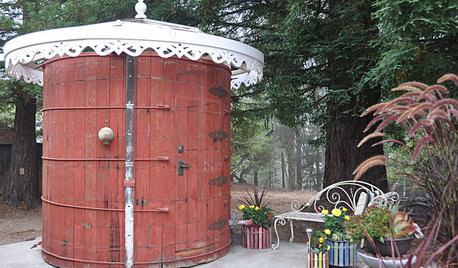
OUTBUILDINGSSee an Outdoor Bathroom Made From a Water Tank
This repurposed fixture in a California backyard is now the owners' favorite bathing spot
Full Story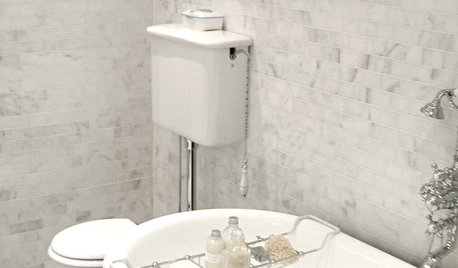
VINTAGE STYLEVintage Style: High-Tank Toilets
Homeowners are adding the feeling of yesteryear in today’s bathrooms
Full Story
MOST POPULARThanksgiving Tales: When the Turkey Tanks
Houzz readers prove adept at snatching victory from the jaws of entertaining defeat
Full Story
CONTRACTOR TIPSBuilding Permits: The Submittal Process
In part 2 of our series examining the building permit process, learn what to do and expect as you seek approval for your project
Full Story
HOUZZ TOURSHouzz Tour: Family Builds Off the Grid Near the Cascade Mountains
Homeowners carefully construct a weekend home on 20 acres in remote northeast Washington
Full Story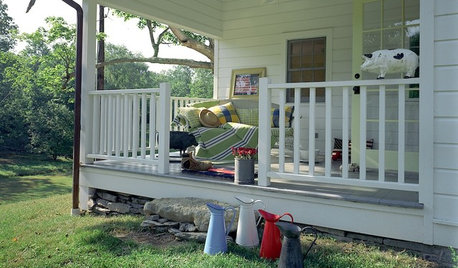
CONTRACTOR TIPSBuilding Permits: 10 Critical Code Requirements for Every Project
In Part 3 of our series examining the building permit process, we highlight 10 code requirements you should never ignore
Full Story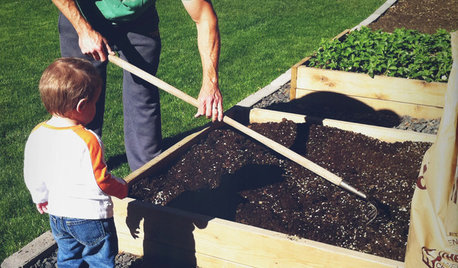
GARDENING AND LANDSCAPINGBuild a Raised Bed to Elevate Your Garden
A bounty of homegrown vegetables is easier than you think with a DIY raised garden bed to house just the right mix of soils
Full Story
CONTRACTOR TIPSBuilding Permits: What to Know About Green Building and Energy Codes
In Part 4 of our series examining the residential permit process, we review typical green building and energy code requirements
Full Story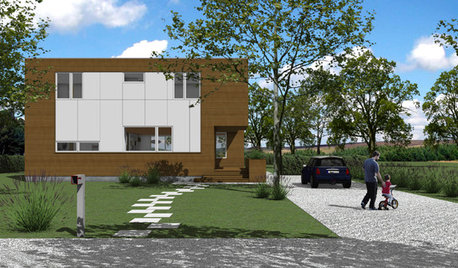
ARCHITECTURE3 Home Design Solutions to Challenging Building Lots
You don't need to throw in the towel on an irregular homesite; today's designers are finding innovative ways to rise to the challenge
Full Story


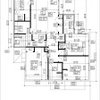

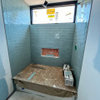
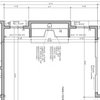
brickeyee